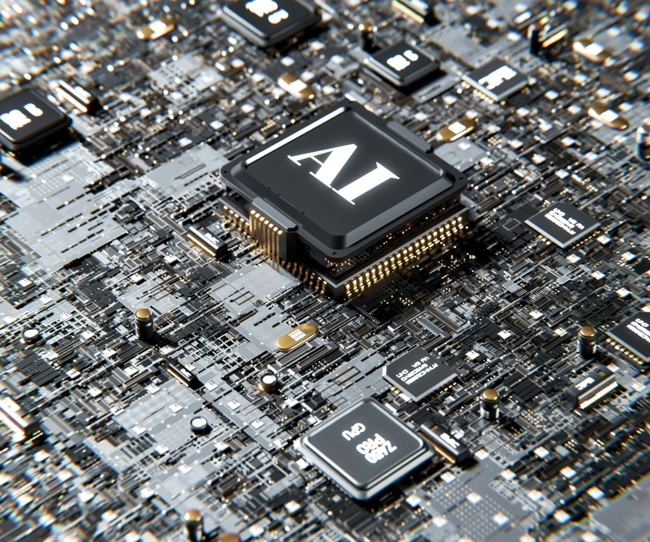Home »
Articles
Unlocking Potential: How an AI Enablement Platform Transforms Business Efficiency
Last updated : July 11, 2025

In an era marked by technological innovation, artificial intelligence is transforming the landscape of business efficiency. Companies across various industries are increasingly leveraging AI to enhance their operations, streamline workflows, and gain a competitive edge. As these intelligent systems become more nuanced, the role of AI enablement platforms in unlocking their full potential is becoming even more critical.
AI Enablement Platforms: The Key to Scaling Innovation in Business
Central to the widespread adoption of AI in business is the emergence of AI enablement platforms. These platforms serve as the backbone for executing complex AI strategies, offering the necessary tools and frameworks to scale innovation. By simplifying the integration of AI into existing systems, enablement platforms lay the groundwork for a more sophisticated and powerful use of technology.
AI enablement platforms come packed with features designed to capitalize on machine learning and cognitive computing. They allow businesses to create custom AI models that are tailored to their unique needs. The modular nature of these platforms also ensures that companies can evolve their AI capabilities as new challenges and opportunities arise.
In essence, an AI enablement platform like BA Insight acts as a catalyst for transformation. For those curious about what is an AI enablement platform, it's an essential piece of the puzzle in the quest to harness artificial intelligence for business success.
Unlocking Business Potential With AI Integration for Workflow Enhancement

By integrating AI into their systems, companies can automate routine tasks, freeing up valuable human resources for more complex decision-making processes. This shift enables employees to focus on innovation and creativity, pushing the boundaries of what's possible within an organization.
The implementation of AI goes well beyond basic automation. Advanced algorithms can identify patterns and predict outcomes, leading to more informed strategic planning. In industries such as healthcare, finance, and manufacturing, the ability to process vast amounts of data quickly and accurately has led to unprecedented efficiency.
It's also worth noting that AI can foster a more personalized approach to customer service. By leveraging machine learning, companies can provide tailored experiences, anticipate customer needs, and respond to inquiries with greater speed and accuracy.
Enhancing Decision-Making Accuracy Through AI-Driven Analytics

In the decision-making arena, AI has revolutionized how we interpret data. AI-driven analytics tools can sift through mountains of information in minutes, revealing trends and opportunities that might otherwise go unnoticed. This powerful capability enhances decision-making accuracy, leading to smarter, data-informed strategies.
Moreover, AI analytics empower businesses to predict consumer behavior, manage risks more effectively, and optimize operations. Predictive analytics, for instance, helps forecast future trends, giving companies the upper hand in strategic planning.
Another dimension of AI-driven analytics is the real-time processing of information. Decisions that once hinged on historical data can now be made based on current trends and insights. This immediacy transforms the reactive nature of business decision-making into a proactive art. Businesses armed with AI tools are better placed to capitalize on emerging opportunities and mitigate potential risks.
Streamlining Operations: The Impact of AI on Process Efficiency
AI's impact on process efficiency reaches into nearly every facet of business operations. Streamlining repetitive and complex tasks is just the beginning; AI systems can oversee entire supply chains, manage inventory, and even conduct market research. These capabilities lead to a leaner, more efficient mode of operation—one that minimizes waste and maximizes output.
Consider the impact of AI on logistics and distribution. Sophisticated routing algorithms and autonomous vehicles are already transforming how products reach consumers. By optimizing delivery routes and reducing transportation costs, companies can pass savings on to the customer, improving satisfaction and brand loyalty.
In the realm of manufacturing, AI enables predictive maintenance, which can foresee equipment malfunctions before they happen. This proactive approach saves time and resources by preventing costly downtime. It's a clear illustration of how AI can influence the bottom line by enhancing the reliability and productivity of operations.
The benefits of streamlined operations are not limited to cost savings; they also include increased agility. In a marketplace where customer preferences can shift overnight, the ability to quickly adapt manufacturing processes and supply chains is invaluable. AI provides this adaptability, offering businesses the flexibility to pivot as needed.
Overall, the transformation of business efficiency through AI enablement platforms is a milestone in the evolution of the corporate world. Companies that effectively harness these innovations not only improve their operations but also set new standards of excellence.
Advertisement
Advertisement